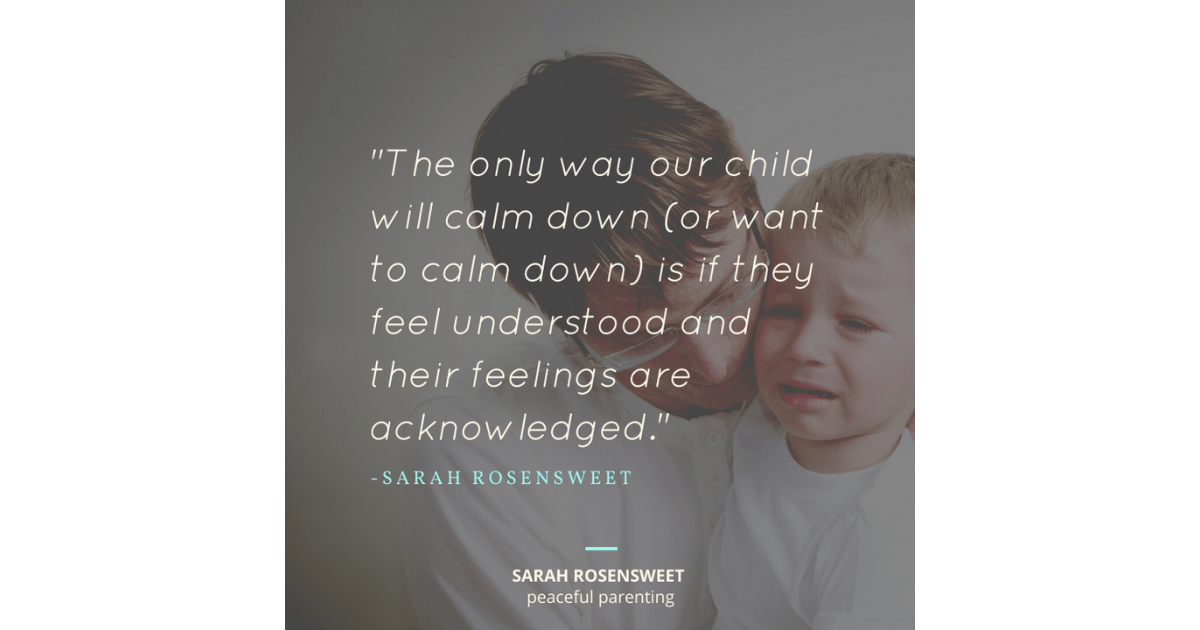“The only way our child will calm down (or want to calm down) is if they feel understood and their feelings are acknowledged.” – Sarah Rosensweet
Parents often want to know, “How can I stop my child from hitting? How can I calm them down?”
Hint- it’s NOT about telling them that hitting isn’t okay and it’s NOT telling them to calm down!
Our child is hitting (or melting down) because the upset they feel has set off their brain and body’s emergency response system.
Their own difficult feelings have been interpreted by their unconscious security system (the amygdala and the limbic system) as Danger! and the fight-flight-or-freeze response is activated.
Danger? Really? How does a child feel they are in danger when we tell them it’s time to turn off the iPad and come to dinner?
Remember that our security system can’t tell the difference between a REAL threat and a PERCEIVED threat. Just like we get triggered when our kid gets out of bed for the millionth time.
We often want to go straight to correcting the behaviour and tell our child to stop hitting and calm down.
This rarely works!
Think about the last time you were really upset. Maybe your partner did something that really made you angry.
What would be your reaction if your partner said, “Calm down! Take some deep breaths!”
What about if your partner said, “Hey, I’m so sorry. You have every right to be upset. I totally understand why you are so angry. Is there anything I can do?”
Way different, yes? When our feelings are acknowledged and met with empathy, we start to feel better and we actually WANT to calm down.
The key to helping a child calm down is to help them feel safe by soothing them with our calm presence- “I’m here” – and our understanding and empathy. We are addressing the roots of the aggressive behaviour: the feelings that set off the ‘danger’ response.
Remember- we don’t have to agree to empathize. We only have to acknowledge and try to understand. “You REALLY want to keep watching and you’re really mad that I’m making you turn it off. I get it. I’d be upset, too. I’m here for a hug if you want one.”
I realize that while this strategy usually helps a lot, it doesn’t *always* work.
We also need to zoom out and work on backpack emptying and look at patterns and situations where aggression arises and see if we can ‘troubleshoot.’ Some older kids need help with developing self-regulation strategies.
Leave a Reply
"How To Stop Yelling At Your Kids"
FREE TRAINING
Ready to transform your parenting experience? Bid farewell to losing your cool and the guilt that follows, as you learn effective strategies to replace yelling with composure, creating a more joyful and relaxed atmosphere for both you and your children.
Access the Free Training
Take the next step forward!
Book a free consult call
Sign up below for a free short consult to learn how we can help you to become the parent you want to be.
Free e-course
How To Stop Yelling At Your Kids
